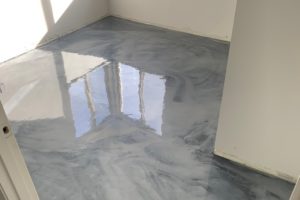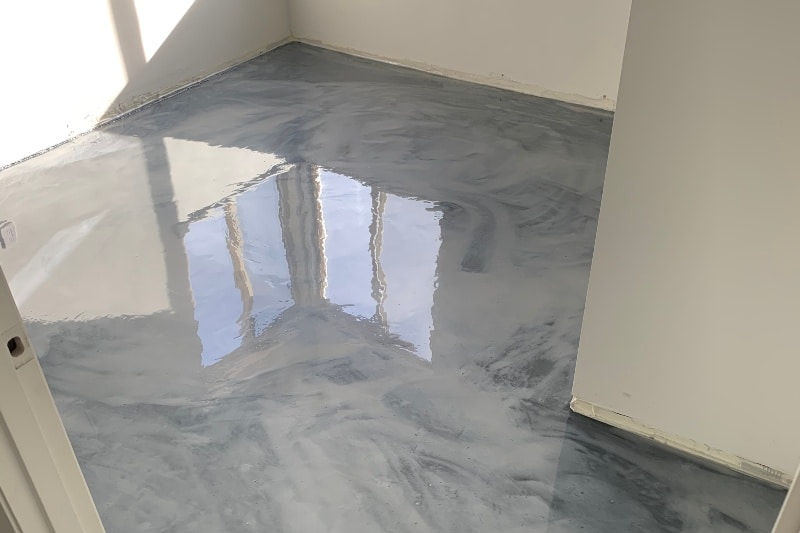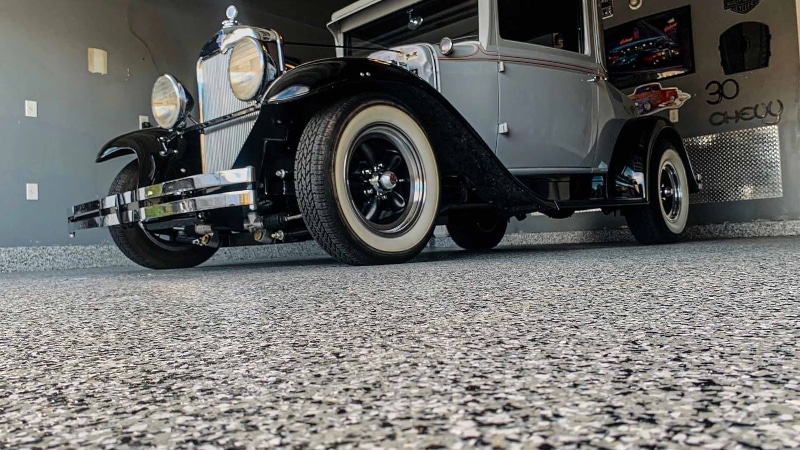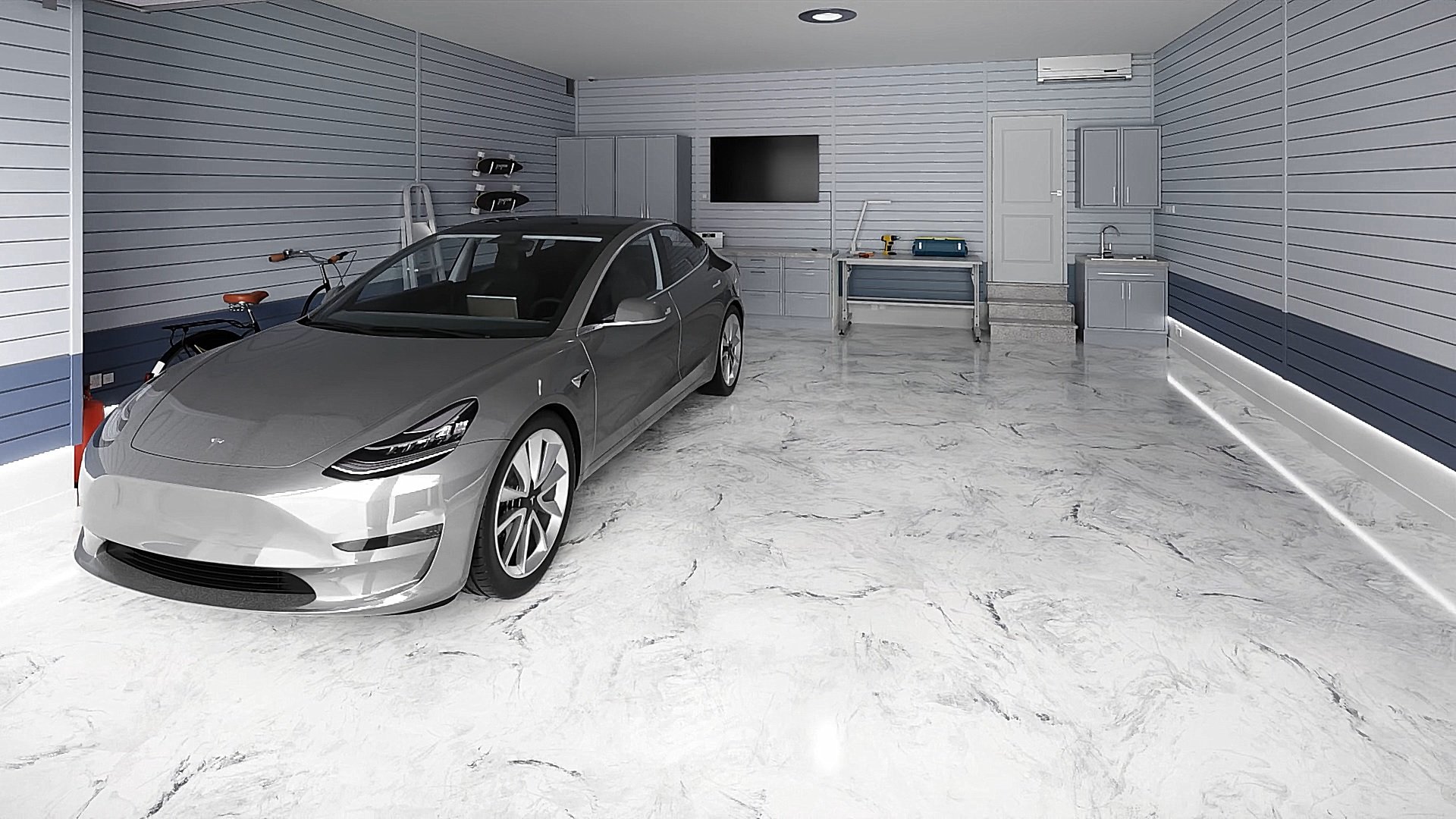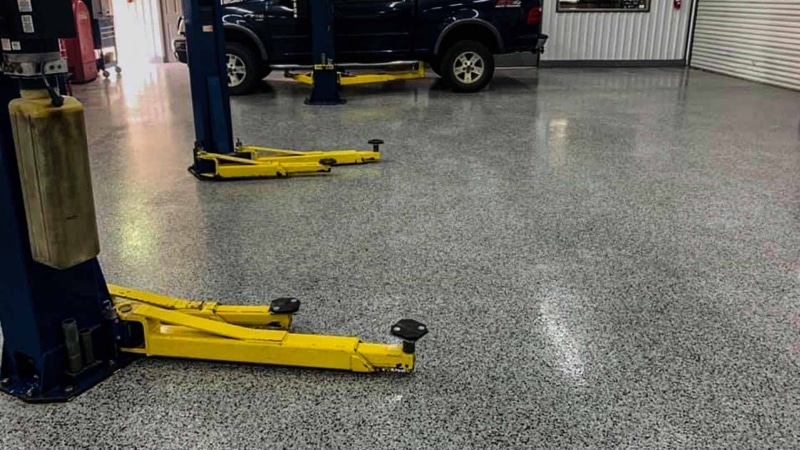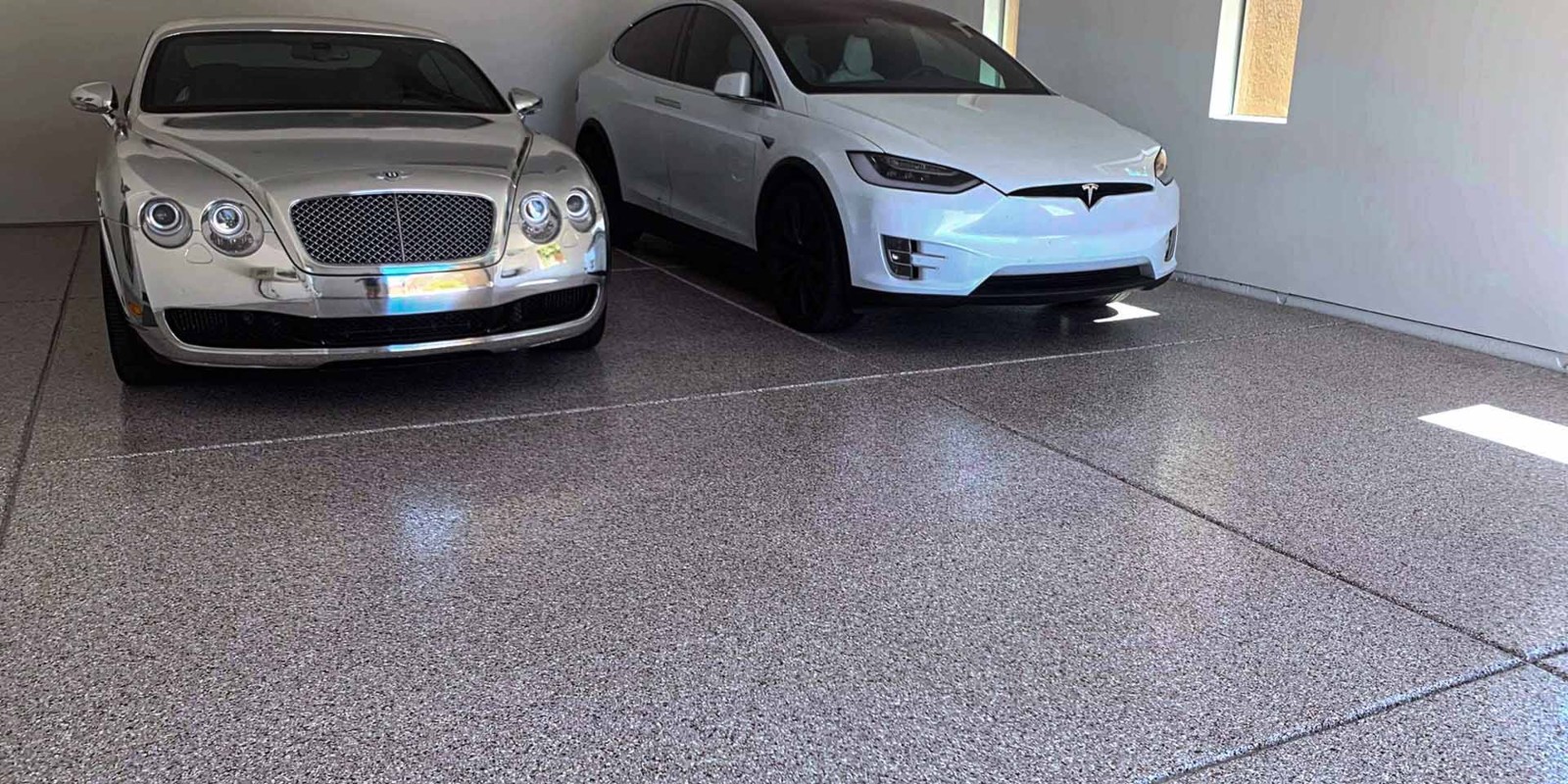An In-depth Guide on How Much to Epoxy Garage Floor
Are you thinking of giving your garage a makeover but don’t know where to start and how much to epoxy garage floor? Epoxy flooring is a great place to begin! Not only is it incredibly durable, but it also provides an aesthetically pleasing look that will make your garage the envy of all. However, while its many benefits are evident, there’s much more to consider when deciding if epoxy flooring is right for you – including cost. In this guide, we’ll explore the various costs associated with epoxy garage floors and how best to handle them without breaking the bank. With our tips and tricks in hand, you’re well on your way to creating a beautiful space at an affordable price. Read on for more details!
Overview of Epoxy Flooring and Its Benefits
Epoxy flooring is a type of surface coating made from a combination of resins and hardeners. When these two components are mixed together, they form a rigid, durable material that bonds extremely well to most base layers. This makes epoxy flooring ideal for high-traffic areas like garages or workshops.
One of the key benefits of epoxy flooring is its durability. It can withstand heavy objects, sharp items, and even chemical spills, making it incredibly long-lasting. Moreover, the glossy finish of epoxy floors can brighten up any space, adding a sleek, modern look. They are also slip-resistant and easy to clean, making them a practical choice for any garage environment. Lastly, epoxy flooring offers endless customization options. You can choose from a wide range of colors and patterns to match your personal style or the aesthetics of your home. With these benefits and more, epoxy flooring remains a popular choice for garage flooring renovations.
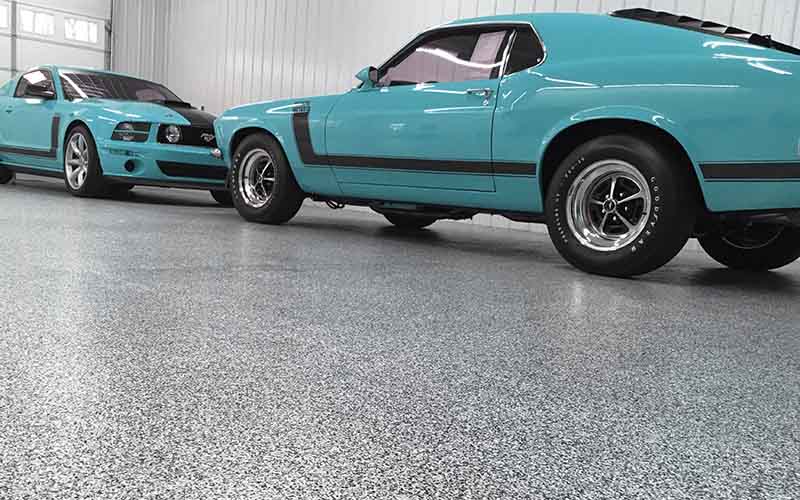
Factors that Impact the Cost of Epoxy Garage Flooring
Several factors can influence the cost of installing epoxy garage flooring.
- Size of the Space: The size of your garage is the most significant factor. Larger areas require more materials and labor, hence increasing the cost.
- Condition of the Existing Floor: If your current garage floor is damaged or uneven, it may need repairs or preparation work before the epoxy can be applied, which can also add to the cost.
- Quality of the Epoxy: There are various grades of epoxy available, ranging from water-based (cheapest) to 100% solid epoxy (most expensive). The type you select will directly affect the cost.
- Complexity of the Design: If you prefer a straightforward, single-color application, costs will be lower. However, if you desire a complex design with multiple colors or patterns, the cost will increase due to the extra time and skill needed to achieve the desired effect.
- Labor Costs: Depending on whether you do it yourself or hire a professional, labor costs can also have a significant impact on the final price. Hiring a professional will typically result in a higher cost but can ensure a higher quality finish and longevity of the floor.
Preparing Your Garage for Epoxy Flooring Installation
Before you begin the process of installing epoxy flooring in your garage, it’s crucial to prepare the space properly. This will not only ensure a smooth installation process but also increase the lifespan of your new epoxy floor.
- Clean the Garage: First and foremost, the garage should be thoroughly cleaned. This involves removing all items, sweeping away dust and debris, and taking care of oil or other stains.
- Check for Moisture: Epoxy doesn’t adhere well to damp surfaces, so it’s essential to check for any signs of moisture on your garage floor.
- Repair Cracks or Damage: Any cracks or damage in the concrete should be repaired. Depending on the severity of the damage, you may need to use a concrete patch product or hire a professional to ensure a smooth, even surface for the epoxy to adhere to.
- Etch the Surface: To aid the adherence of the epoxy, the surface of your garage floor must be “etched” to create tiny grooves. This can be accomplished using a commercial concrete etcher and a stiff-bristled broom.
- Apply a Primer: Applying a primer to the floor before the epoxy helps to ensure a strong bond and can enhance the color and gloss of the epoxy flooring.
Remember, proper preparation is key when it comes to installing epoxy flooring. Taking the time to prepare your garage properly will result in a smoother installation process and a more durable, longer-lasting floor.

Price Comparison for Various Types of Epoxy Flooring
When it comes to epoxy flooring, there are several types to choose from, each with its own price range:
- Water-Based Epoxy: This is the most cost-effective type of epoxy, with prices typically ranging between $30 to $50 per gallon. It’s easy to apply and provides a decent level of durability, however, it isn’t as robust or long-lasting as other types.
- Solvent-Based Epoxy: A bit pricier, solvent-based epoxy costs around $45 to $85 per gallon. It provides a more durable finish than water-based epoxy and offers better resistance to chemical spills and heavy wear.
- 100% Solid Epoxy: This is the highest-grade epoxy you can get, with a price tag to match. Expect to pay between $100 to $150 per gallon. This type of epoxy is extremely durable, giving a thick, hard finish that can withstand even the toughest garage conditions.
Please note, these prices are for the epoxy only. They do not include the costs of labor, preparation, or any additional materials needed for application. The total cost will vary depending on the size of your garage, the condition of your current floor, and whether you choose to DIY or hire a professional.
Tips and Tricks to Save Money on Installing Epoxy Floors
With the right approach, you can save substantial money on installing epoxy floors. Here are several tips and tricks for doing so:
- DIY Installation: If you’re handy and willing to put in the time and effort, consider installing the epoxy flooring yourself. Although this requires careful preparation and attention to detail, it can significantly cut down the overall cost. There are plenty of online tutorials and guides available to assist you.
- Bulk Purchases: If you have a large area to cover, buying your supplies in bulk can result in substantial savings. Many suppliers offer discounts for large orders.
- Choose the Right Epoxy for Your Needs: While high-grade, 100% solid epoxy is the most durable option, it may not be necessary for all garages. If your garage sees moderate use, a water-based or solvent-based epoxy might be sufficient, saving you money on upfront costs.
- Prep the Floor Yourself: Even if you decide to hire a professional for the actual epoxy application, you can save money by handling the preparation work yourself. This includes cleaning your garage, repairing any damage to the concrete, and etching the surface to ensure the epoxy adheres correctly.
Remember, while these tips can save you money, it’s essential not to cut corners on the quality of the materials or the preparation process. Doing so could result in a less durable floor that will need to be repaired or replaced sooner, costing you more in the long run.
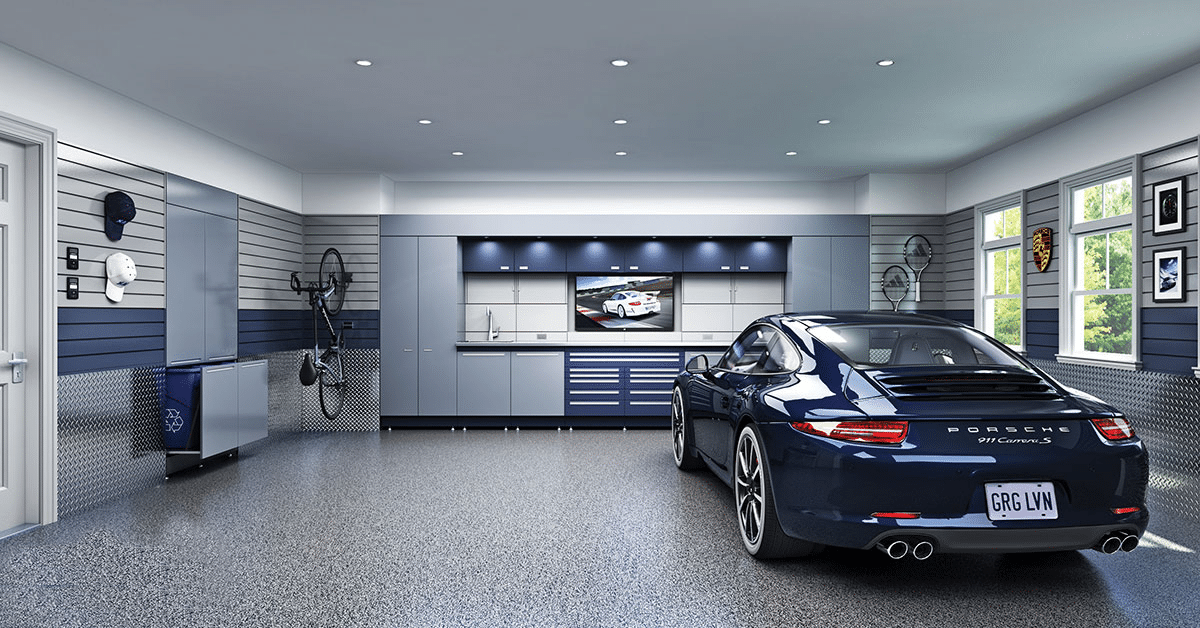
DIY or Professional Installation – What’s the Best Option for You
Choosing between DIY or professional installation for epoxy flooring ultimately depends upon your personal preference, skills, and budget.
- DIY Installation: This option is best suited for those who are adept at home improvement tasks and have the necessary time to dedicate to the project. The process requires attention to detail, particularly during the preparation phase, and improper installation can lead to peeling or chipping. However, it offers significant cost savings as you avoid professional labor charges.
- Professional Installation: Opting for professional epoxy floor installation ensures that the job is done correctly and efficiently. Professionals possess the right tools, knowledge, and experience to avoid common installation mistakes. This option provides peace of mind and guarantees a high-quality finish. However, it comes with higher costs as you pay for expertise and convenience.
In summary, the best option for you boils down to your personal circumstances. If you are confident in your DIY abilities and have time, you could save money by doing it yourself. On the other hand, if you prefer a hassle-free experience and don’t mind spending a bit more, a professional installation might be the better choice.
Wise Coatings of Austin
https://goo.gl/maps/uisYsX9zx3Z6AWL29
+1 512 599 9473
https://wisecoatings.com/austin


